- Home
- Nora Roberts
Once Upon a Castle
Once Upon a Castle Read online
ONCE UPON A CASTLE
And she was there, just there, conjured up out of storm-whipped air. Her hair was a firefall over a dove-gray cloak, alabaster skin with the faint bloom of rose, a generous mouth just curved in knowledge…
His heart leaped, and his blood churned with love, lust, longing.
She came to him, wading through the knee-high mists, her beauty staggering. With his eyes on hers, he swung off his horse, eager for the woman who was witch, and lover.
—from “Spellbound” by Nora Roberts,
New York Times Bestselling Author of River’s End,
Jewels of the Sun, and Tears of the Moon
Titles by LaVyrle Spencer
THEN CAME HEAVEN
SMALL TOWN GIRL
THAT CAMDEN SUMMER
HOME SONG
FAMILY BLESSINGS
NOVEMBER OF THE HEART
BYGONES
FORGIVING
BITTER SWEET
THE ENDEARMENT
MORNING GLORY
SPRING FANCY
THE HELLION
VOWS
THE GAMBLE
A HEART SPEAKS
YEARS
SEPARATE BEDS
TWICE LOVED
SWEET MEMORIES
HUMMINGBIRD
THE FULFILLMENT
ONCE UPON A CASTLE
Nora Roberts, Jill Gregory, Ruth Ryan Langan and Marianne Willman
A Jove Book
This is a work of fiction. Names, characters, places, and incidents are either the product of the author’s imagination or are used fictitiously, and any resemblance to actual persons, living or dead, business establishments, events, or locales is entirely coincidental.
ONCE UPON A CASTLE
A Jove Book / published by arrangement with the authors
All rights reserved.
Collection copyright 1998 by Penguin Putnam Inc.
“Spellbound” copyright 1998 by Nora Roberts.
“Castle Doom” copyright 1998 by Jill Gregory.
“Falcon’s Lair” copyright 1998 by Ruth Ryan Langan.
“Dragonspell” copyright 1998 by Marianne Willman.
This book, or parts thereof, may not be reproduced in any form without permission.
For information address:
The Berkley Publishing Group, a division of Penguin Putnam Inc.,
375 Hudson Street, New York, New York 10014.
The Penguin Putnam Inc. World Wide Web site address is
http://www.penguinputnam.com
ISBN: 1-101-14694-X
A JOVE BOOK
Jove Books are published by
The Berkley Publishing Group, a division of Penguin Putnam Inc.,
375 Hudson Street, New York, New York 10014.
JOVE and the “J” design are trademarks belonging to Penguin Putnam Inc.
CONTENTS
Spellbound
Nora Roberts
Castle Doom
Jill Gregory
Falcon’s Lair
Ruth Ryan Langan
Dragonspell
Marianne Willman
SPELLBOUND
Nora Roberts
To all my wonderful friends in this life and all the others
PROLOGUE
Love. My love.
Let me into your dreams. Open your heart again and hear me. Calin, I need you so. Don’t turn from me now, or all is lost. I am lost. Love. My love.
Calin shifted restlessly in sleep, turned his face into the pillow. Felt her there, somehow. Skin, soft and dewy. Hands, gentle and soothing. Then drifted into dreams of cool and quiet mists, hills of deep, damp green that rolled to forever. And the witchy scent of woman.
The castle rose atop a cliff, silver stone spearing into stormy skies, its base buried in filmy layers of fog that ran like a river. The sound of his mount’s bridle jingled battle-bright on the air as he rode, leaving the green hills behind and climbing high on rock. Thunder sounded in the west, over the sea. And echoed in his warrior’s heart.
Had she waited for him?
His eyes, gray as the stone of the castle, shifted, scanned, searching rock and mist for any hole where a foe could hide. Even as he urged his mount up the rugged path cleaved into the cliff he knew he carried the stench of war and death, that it had seeped into his pores just as the memories of it had seeped into his brain.
Neither body nor mind would ever be fully clean of it.
His sword hand lay light and ready on the hilt of his weapon. In such places a man did not lower his guard. Here magic stung the air and could embrace or threaten. Here faeries plotted or danced, and witches cast their spells for good or ill.
Atop the lonely cliff, towering above the raging sea, the castle stood, holding its secrets. And no man rode this path without hearing the whispers of old ghosts and new spirits.
Had she waited for him?
The horse’s hooves rang musically over the rock until at last they traveled to level ground. He dismounted at the foot of the keep just as lightning cracked the black sky with a blaze of blinding white light.
And she was there, just there, conjured up out of storm-whipped air. Her hair was a firefall over a dove-gray cloak, alabaster skin with the faint bloom of rose, a generous mouth just curved in knowledge. And eyes as blue as a living star and just as filled with power.
His heart leaped, and his blood churned with love, lust, longing.
She came to him, wading through the knee-high mists, her beauty staggering. With his eyes on hers, he swung off his horse, eager for the woman who was witch, and lover.
“Caelan of Farrell, ‘tis far you’ve traveled in the dark of the night. What do you wish of me?”
“Bryna the Wise.” His hard, ridged lips bowed in a smile that answered hers. “I wish for everything.”
“Only everything?” Her laugh was low and intimate. “Well, that’s enough, then. I waited for you.”
Then her arms were around him, her mouth lifting to his. He pulled her closer, desperate for the shape of her, wild to have whatever she would offer him, and more.
“I waited for you,” she repeated with a catch in her voice as she pressed her face to his shoulder. “‘Twas almost too long this time. His power grows while mine weakens. I can’t fight him alone. Alasdair is too strong, his dark forces too greedy. Oh, love. My love, why did you shut me out of your mind, out of your heart?”
He drew her away. The castle was gone—only ruins remained, empty, battle-scarred. They stood in the shadow of what had been, before a small house alive with flowers. The scent of them was everywhere, heady, intoxicating. The woman was still in his arms. And the storm waited to explode.
“The time is short now,” she told him. “You must come. Calin, you must come to me. Destiny can’t be denied, a spell won’t be broken. Without you with me, he’ll win.”
He shook his head, started to speak, but she lifted a hand to his face. It passed through him as if he were a ghost. Or she was. “I have loved you throughout time.” As she spoke, she moved back, the mists flowing around her legs. “I am bound to you, throughout time.”
Then lifting her arms, raising palms to the heavens, she closed her eyes. The wind roared in like a lion loosed from a cage, lifted her flaming hair, whipped the cloak around her.
“I have little left,” she called over the violence of the storm. “But I can still call up the wind. I can still call to your heart. Don’t keep it from me, Calin. Come to me soon. Find me. Or I’m lost.”
Then she was gone. Vanished. The earth trembled beneath his feet, the sky howled. And all went silent and still.
He awoke gasping for breath. And reaching out.
1
“Calin Farrell, you need a vacation.”
Cal lifted a shoulder, sipped his coffee, and continued to brood while staring out the kitchen window. He wasn’t sure why he’d come here to listen to his mother nag and worry about him, to hear his father whistle as he meticulously tied his fishing flies at the table. But he’d had a deep, driving urge to be in the home of his childhood, to grab an hour or two in the tidy house in Brooklyn Heights. To see his parents.
“Maybe. I’m thinking about it.”
“Work too hard,” his father said, eyeing his own work critically. “Could come to Montana for a couple of weeks with us. Best fly-fishing in the world. Bring your camera.” John Farrell glanced up and smiled. “Call it a sabbatical.”
It was tempting. He’d never been the fishing enthusiast his father was, but Montana was beautiful. And big. Cal thought he could lose himself there. And shake off the restlessness. The dreams.
“A couple of weeks in the clean air will do you good.” Sylvia Farrell narrowed her eyes as she turned to her son. “You’re looking pale and tired, Calin. You need to get out of that city for a while.”
Though she’d lived in Brooklyn all of her life, Sylvia still referred to Manhattan as “that city” with light disdain and annoyance.
“I’ve been thinking about a trip.”
“Good.” His mother scrubbed at her countertop. They were leaving the next morning, and Sylvia Farrell wouldn’t leave a crumb or a mote of dust behind. “You’ve been working too hard, Calin. Not that we aren’t proud of you. After your exhibit last month your father bragged so much that the neighbors started to hide when they saw him coming.”
“Not every day a man gets to see his son’s photographs in the museum. I liked the nudes especially,” he added with a wink.
“You old fool,” Sylvia muttered, but her lips twitched. “Well, who’d have thought when we bought you that little camera for Christmas when you were eight that twenty-two years later you’d be rich and famous? But wealth and fame carry a price.”
She took her son’s face in her hands and studied it with a mother’s keen eye. His eyes were shadowed, she noted, his face too thin. She worried for the man she’d raised, and the boy he had been who had always seemed to have…something more than the ordinary.
“You’re paying it.”
“I’m fine.” Reading the worry in her eyes, recognizing it, he smiled. “Just not sleeping very well.”
There had been other times, Sylvia remembered, that her son had grown pale and hollow-eyed from lack of sleep. She exchanged a quick glance with her husband over Cal’s shoulder.
“Have you, ah, seen the doctor?”
“Mom, I’m fine.” He knew his voice was too sharp, too defensive. Struggled to lighten it. “I’m perfectly fine.”
“Don’t nag the boy, Syl.” But John studied his son closely also, remembering, as his wife did, the young boy who had talked to shadows, had walked in his sleep, and had dreamed of witches and blood and battle.
“I’m not nagging. I’m mothering.” She made herself smile.
“I don’t want you to worry. I’m a little stressed-out, that’s all.” That was all, he thought, determined to make it so. He wasn’t different, he wasn’t odd. Hadn’t the battalion of doctors his parents had taken him to throughout his childhood diagnosed an overdeveloped imagination? And hadn’t he finally channeled that into his photography?
He didn’t see things that weren’t there anymore.
Sylvia nodded, told herself to accept that. “Small wonder. You’ve been working yourself day and night for the last five years. You need some rest, you need some quiet. And some pampering.”
“Montana,” John said again. “Couple of weeks of fishing, clean air, and no worries.”
“I’m going to Ireland.” It came out of Cal’s mouth before he’d realized the idea was in his head.
“Ireland?” Sylvia pursed her lips. “Not to work, Calin.”
“No, to…to see,” he said at length. “Just to see.”
She nodded, satisfied. A vacation, after all, was a vacation. “That’ll be nice. It’s supposed to be a restful country. We always meant to go, didn’t we, John?”
Her husband grunted his assent. “Going to look up your ancestors, Cal?”
“I might.” Since the decision seemed to be made, Cal sipped his coffee again. He was going to look up something, he realized. Or someone.
It was raining when he landed at Shannon Airport. The chilly late-spring rain seemed to suit his mood. He’d slept nearly all the way across the Atlantic. And the dreams had chased him. He went through customs, arranged to rent a car, changed money. All of this was done with the mechanical efficiency of the seasoned traveler. And as he completed the tasks, he tried not to worry, tried not to dwell on the idea that he was having a breakdown of some kind.
He climbed into the rented car, then simply sat in the murky light wondering what to do, where to go. He was thirty, a successful photographer who could name his own price, call his own shots. He still considered it a wild twist of fate that he’d been able to make a living doing something he loved. Using what he saw in a landscape, in a face, in light and shadow and texture, and translating that into a photograph.
It was true that the last few years had been hectic and he’d worked almost nonstop. Even now the trunk of the Volvo he’d rented was loaded with equipment, and his favored Nikon rested in its case on the seat beside him. He couldn’t get away from it—didn’t want to run away from what he loved.
Suddenly an odd chill raced through him, and he thought, for just a moment, that he heard a woman weeping.
Just the rain, he told himself and scrubbed his hands over his handsome face. It was long, narrow, with the high, strong cheekbones of his Celtic forefathers. His nose was straight, his mouth firm and well formed. It smiled often—or it had until recently.
His eyes were gray—a deep, pure gray without a hint of green or blue. The brows over them were strongly arched and tended to draw together in concentration. His hair was black and thick and flowed over his collar. An artistic touch that a number of women had enjoyed.
Again, until recently.
He brooded over the fact that it had been months since he’d been with a woman—since he’d wanted to. Overwork again? he wondered. A byproduct of stress? Why would he be stressed when his career was advancing by leaps and bounds? He was healthy. He’d had a complete physical only weeks before.
But you didn’t tell the doctor about the dreams, did you? he reminded himself. The dreams you can’t quite remember when you wake up. The dreams, he admitted, that had pulled him three thousand miles over the ocean.
No, damn it, he hadn’t told the doctor. He wasn’t going that route again. There had been enough psychiatrists in his youth, poking and prodding into his mind, making him feel foolish, exposed, helpless. He was a grown man now and could handle his own dreams.
If he was having a breakdown, it was a perfectly normal one and could be cured by rest, relaxation, and a change of scene.
That’s what he’d come to Ireland for. Only that.
He started the car and began to drive aimlessly.
He’d had dreams before, when he was a boy. Very clear, too realistic dreams. Castles and witches and a woman with tumbling red hair. She’d spoken to him with that lilt of Ireland in her voice. And sometimes she’d spoken in a language he didn’t know—but had understood nonetheless.
There’d been a young girl—that same waterfall of hair, the same blue eyes. They’d laughed together in his dreams. Played together—innocent childhood games. He remembered that his parents had been amused when he’d spoken of his friend. They had passed it off, he thought, as the natural imagination of a sociable only child.
But they’d been concerned when he seemed to know things, to see things, to speak of places and people he couldn’t have had knowledge of. They’d worried over him when his sleep was disturbed night after night—when he began to walk and talk while glazed in dreams.
So, after the doctor
s, the therapists, the endless sessions, and those quick, searching looks that adults thought children couldn’t interpret, he’d stopped speaking of them.
And as he’d grown older, the young girl had grown as well. Tall and slim and lovely—young breasts, narrow waist, long legs. Feelings and needs for her that weren’t so innocent had begun to stir.
It had frightened him, and it had angered him. Until he’d blocked out that soft voice that came in the night. Until he’d turned away from the image that haunted his dreams. Finally, it had stopped. The dreams stopped. The little flickers in his mind that told him where to find lost keys or had him reaching for the phone an instant before it rang ceased.
He was comfortable with reality, Cal told himself. Had chosen it. And would choose it again. He was here only to prove to himself that he was an ordinary man suffering from overwork. He would soak up the atmosphere of Ireland, take the pictures that pleased him. And, if necessary, take the pills his doctor had prescribed to help him sleep undisturbed.
He drove along the storm-battered coast, where wind roared in over the sea and held encroaching summer at bay with chilly breath.
Rain pattered the windshield, and fog slithered over the ground. It was hardly a warm welcome, yet he felt at home. As if something, or someone, was waiting to take him in from the storm. He made himself laugh at that. It was just the pleasure of being in a new place, he decided. It was the anticipation of finding new images to capture on film.
He felt a low-grade urge for coffee, for food, but easily blocked it as he absorbed the scenery. Later, he told himself. He would stop later at some pub or inn, but just now he had to see more of this haunting landscape. So savagely beautiful, so timeless.
And if it was somehow familiar, he could put that down to place memory. After all, his ancestors had roamed these spearing cliffs, these rolling green hills. They had been warriors, he thought. Had once painted themselves blue and screamed out of the forests to terrorize the enemy. Had strapped on armor and hefted sword and pike to defend their land and protect their freedom.

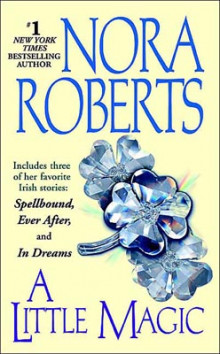 A Little Magic
A Little Magic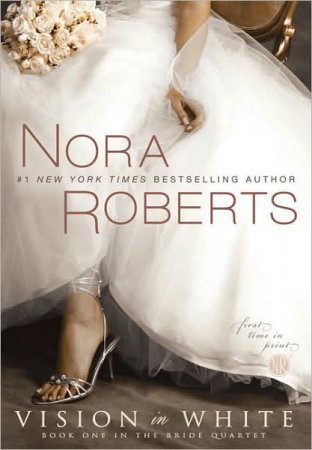 Vision in White
Vision in White True Betrayals
True Betrayals The Next Always
The Next Always A Man for Amanda
A Man for Amanda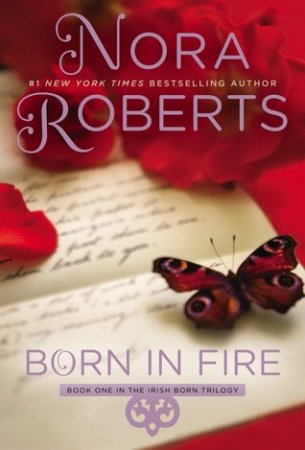 Born in Fire
Born in Fire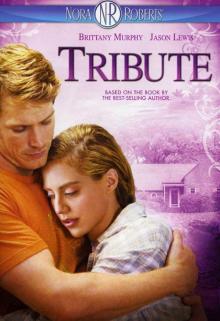 Tribute
Tribute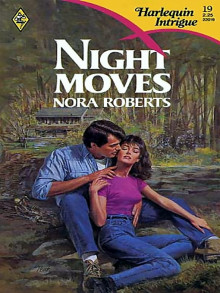 Night Moves
Night Moves Dance Upon the Air
Dance Upon the Air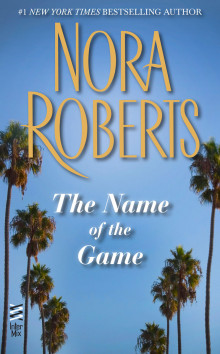 The Name of the Game
The Name of the Game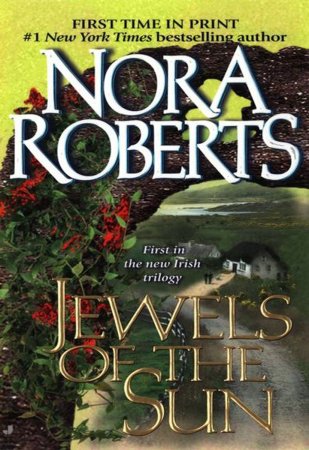 Jewels of the Sun
Jewels of the Sun River's End
River's End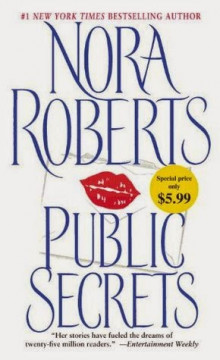 Public Secrets
Public Secrets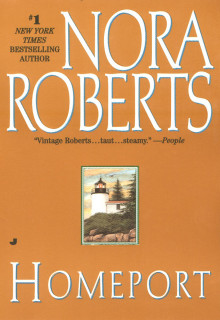 Homeport
Homeport Private Scandals
Private Scandals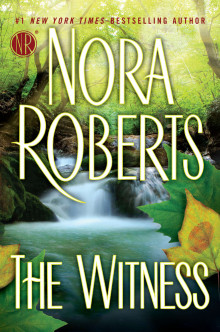 The Witness
The Witness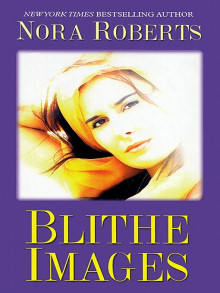 Blithe Images
Blithe Images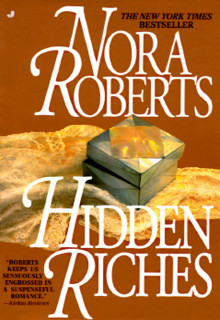 Hidden Riches
Hidden Riches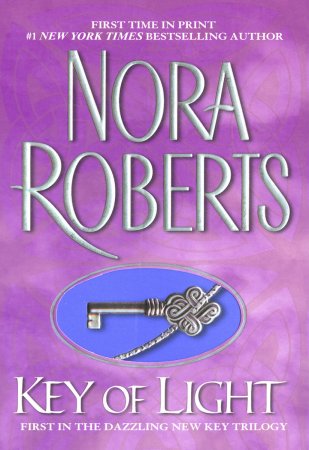 Key of Light
Key of Light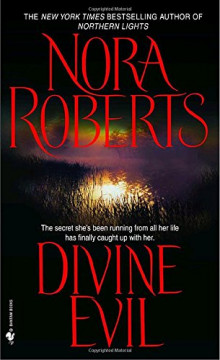 Divine Evil
Divine Evil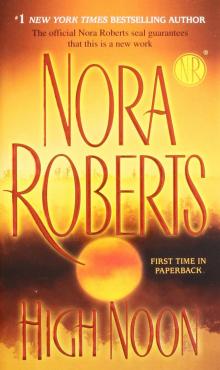 High Noon
High Noon Blue Dahlia
Blue Dahlia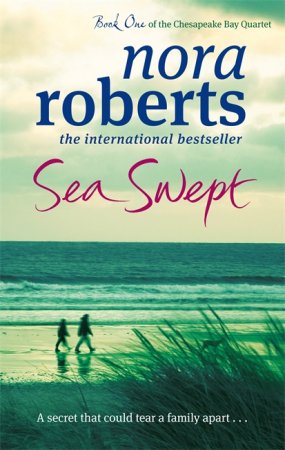 Sea Swept
Sea Swept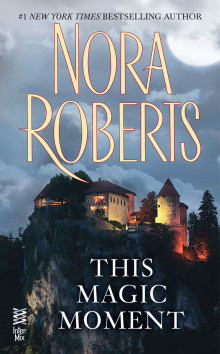 This Magic Moment
This Magic Moment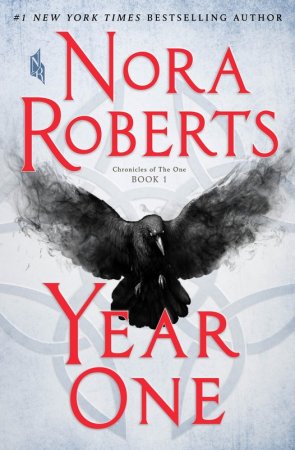 Year One
Year One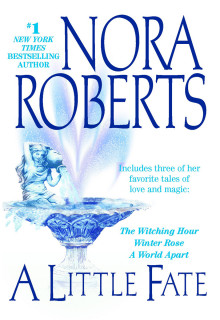 A Little Fate
A Little Fate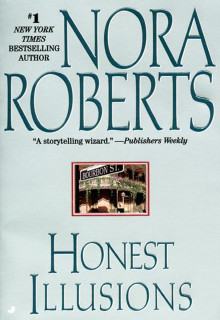 Honest Illusions
Honest Illusions The Reef
The Reef Shelter in Place
Shelter in Place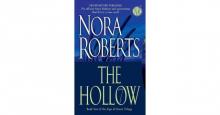 The Hollow
The Hollow Holding the Dream
Holding the Dream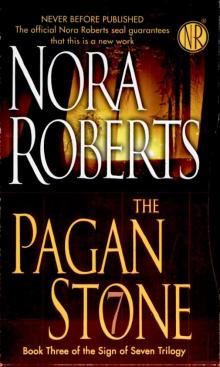 The Pagan Stone
The Pagan Stone Savour the Moment
Savour the Moment The Perfect Hope
The Perfect Hope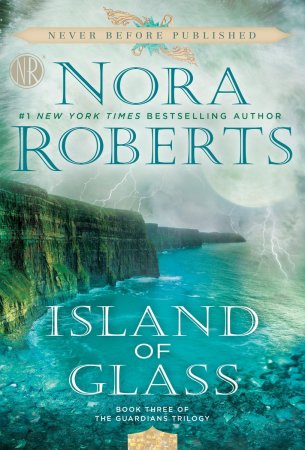 Island of Glass
Island of Glass Happy Ever After
Happy Ever After Bed of Roses
Bed of Roses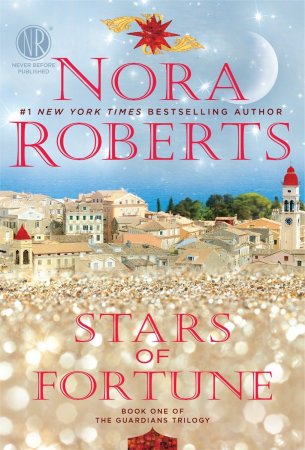 Stars of Fortune
Stars of Fortune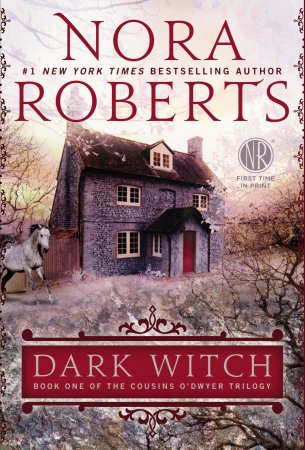 Dark Witch
Dark Witch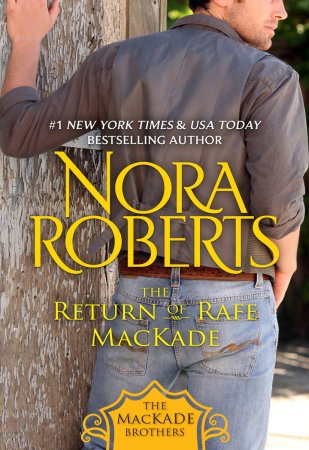 The Return of Rafe MacKade
The Return of Rafe MacKade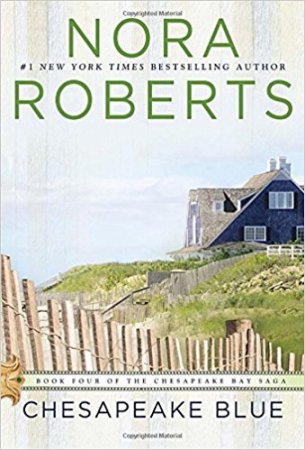 Chesapeake Blue
Chesapeake Blue The Perfect Neighbor
The Perfect Neighbor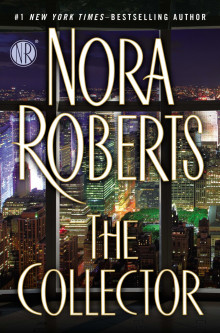 The Collector
The Collector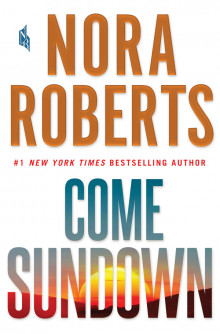 Come Sundown
Come Sundown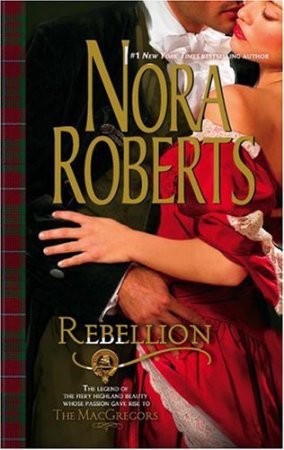 Rebellion
Rebellion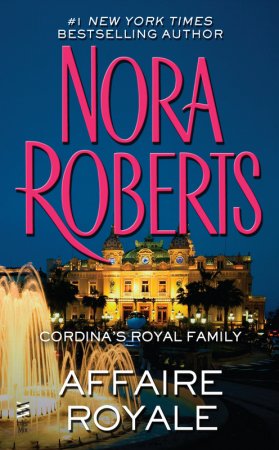 Affaire Royale
Affaire Royale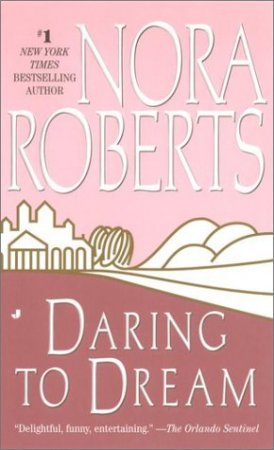 Daring to Dream
Daring to Dream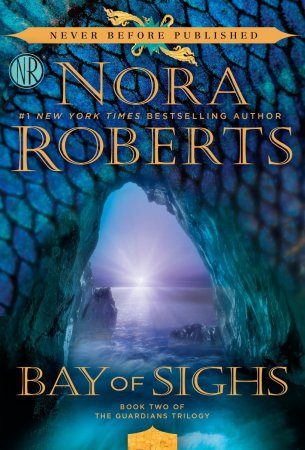 Bay of Sighs
Bay of Sighs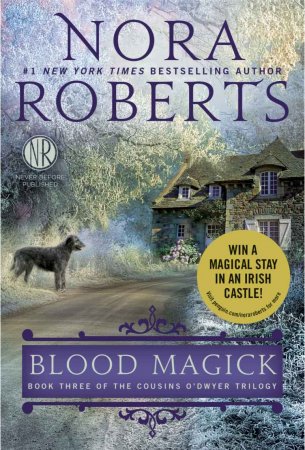 Blood Magick
Blood Magick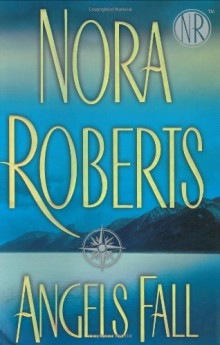 Angels Fall
Angels Fall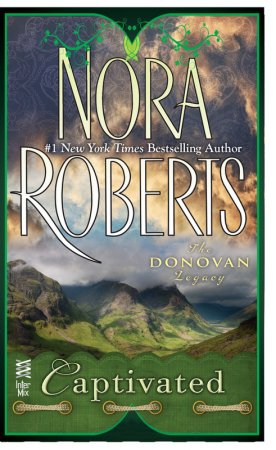 Captivated
Captivated The Last Boyfriend
The Last Boyfriend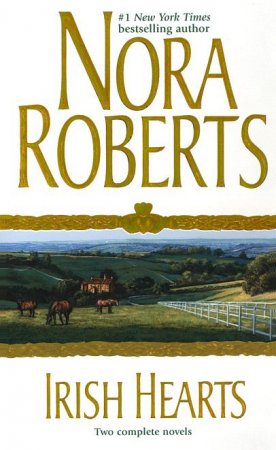 Irish Thoroughbred
Irish Thoroughbred Inner Harbor
Inner Harbor The Right Path
The Right Path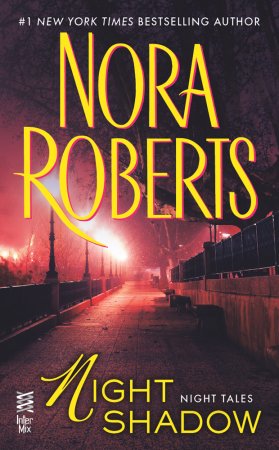 Night Shadow
Night Shadow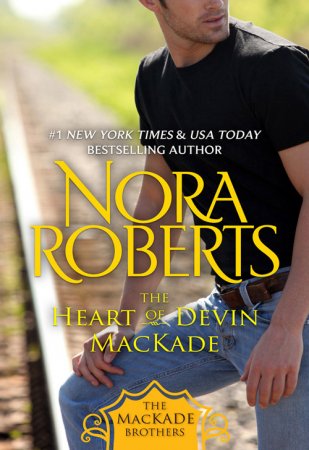 The Heart of Devin MacKade
The Heart of Devin MacKade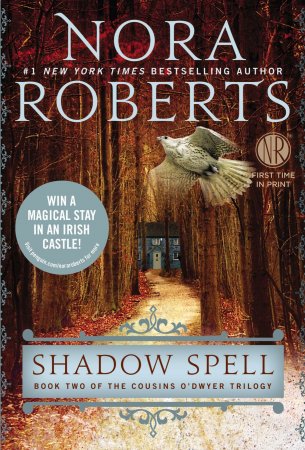 Shadow Spell
Shadow Spell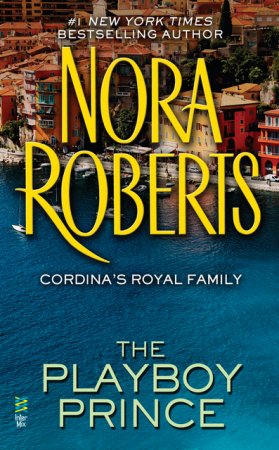 The Playboy Prince
The Playboy Prince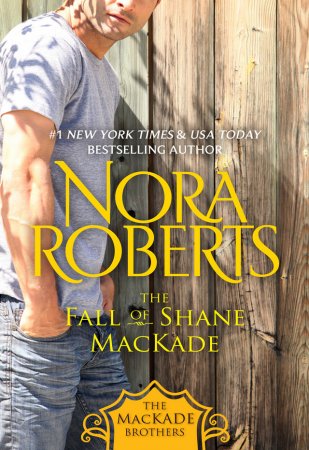 The Fall of Shane MacKade
The Fall of Shane MacKade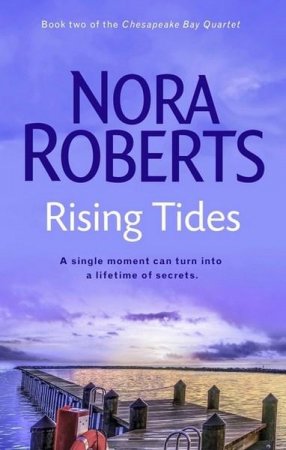 Rising Tides
Rising Tides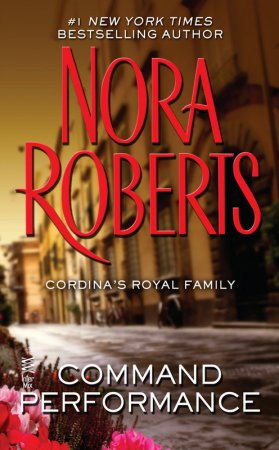 Command Performance
Command Performance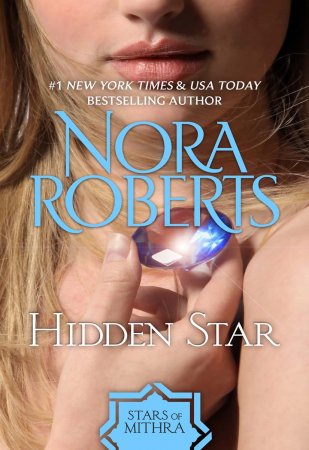 Hidden Star
Hidden Star Cordina's Crown Jewel
Cordina's Crown Jewel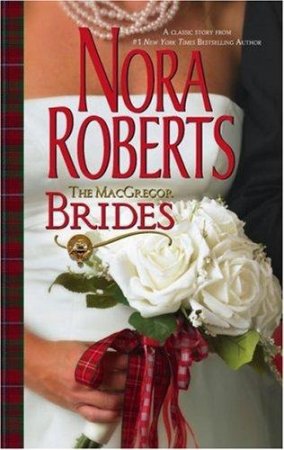 The MacGregor Brides
The MacGregor Brides The Pride of Jared MacKade
The Pride of Jared MacKade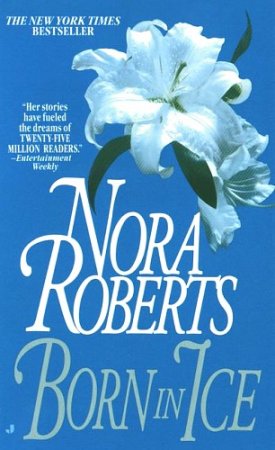 Born in Ice
Born in Ice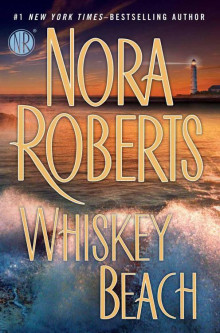 Whiskey Beach
Whiskey Beach The Last Honest Woman
The Last Honest Woman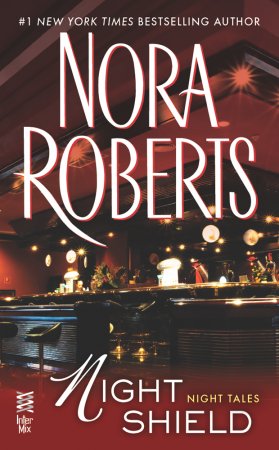 Night Shield
Night Shield Born in Shame
Born in Shame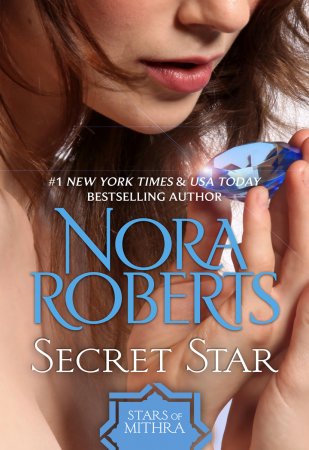 Secret Star
Secret Star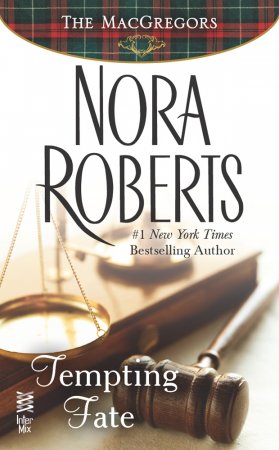 Tempting Fate
Tempting Fate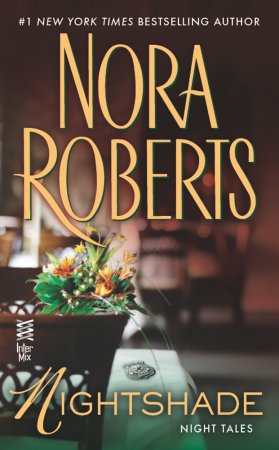 Nightshade
Nightshade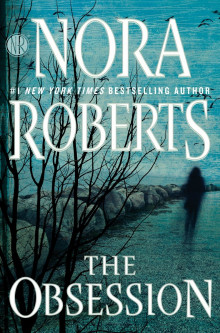 The Obsession
The Obsession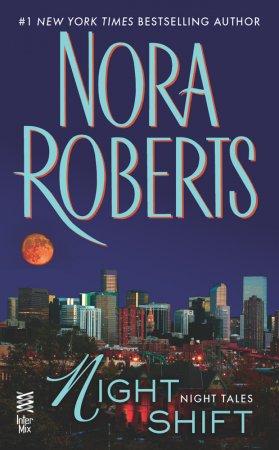 Night Shift
Night Shift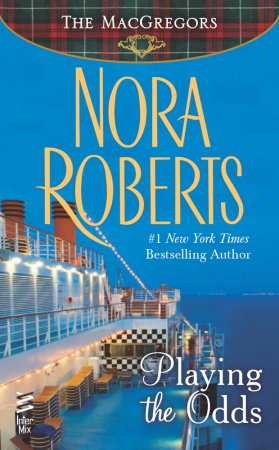 Playing The Odds
Playing The Odds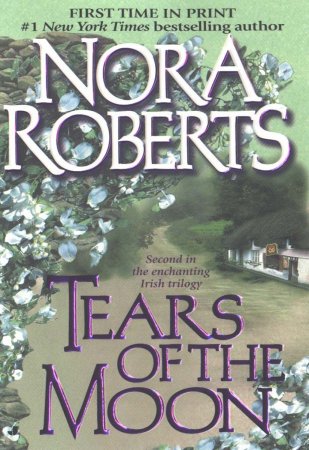 Tears of the Moon
Tears of the Moon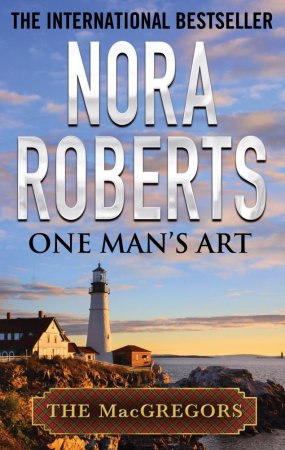 One Man's Art
One Man's Art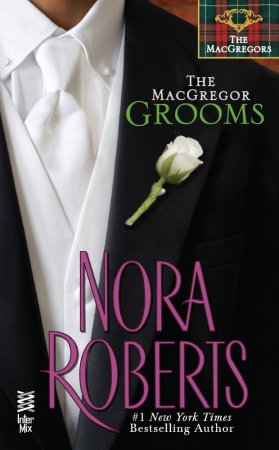 The MacGregor Groom
The MacGregor Groom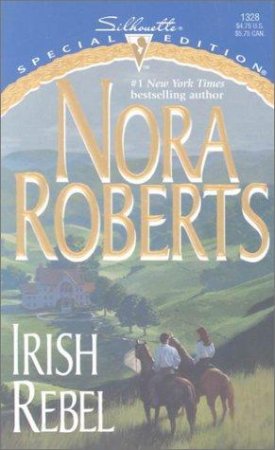 Irish Rebel
Irish Rebel Morrigan's Cross
Morrigan's Cross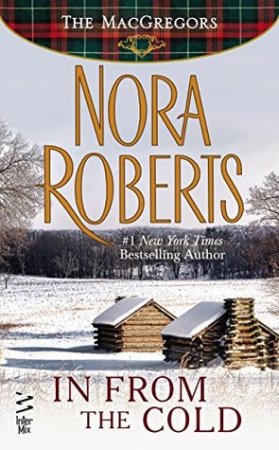 In From The Cold
In From The Cold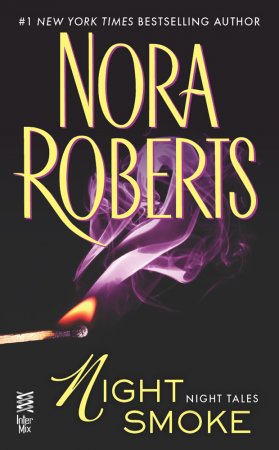 Night Smoke
Night Smoke Finding the Dream
Finding the Dream Red Lily
Red Lily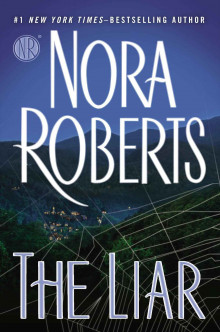 The Liar
The Liar Montana Sky
Montana Sky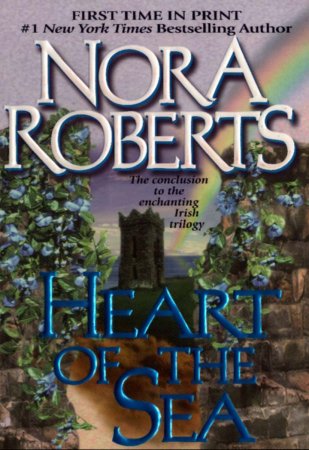 Heart of the Sea
Heart of the Sea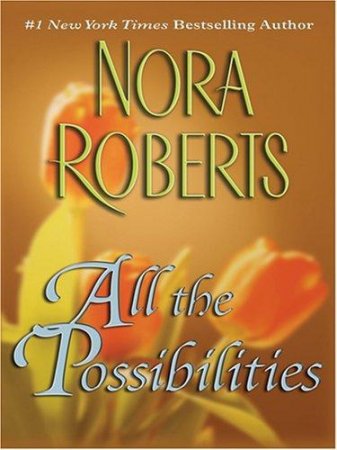 All The Possibilities
All The Possibilities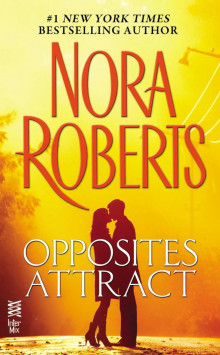 Opposites Attract
Opposites Attract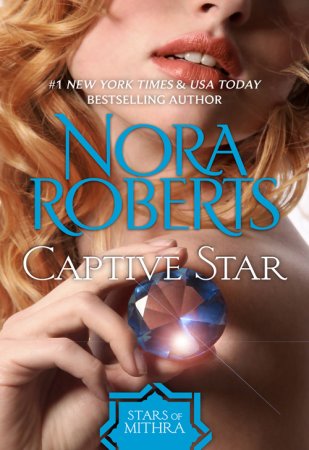 Captive Star
Captive Star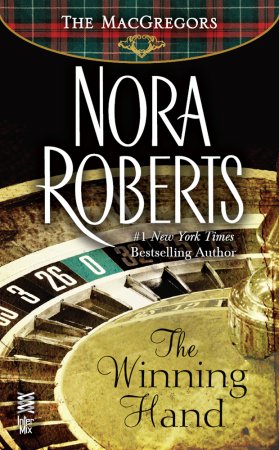 The Winning Hand
The Winning Hand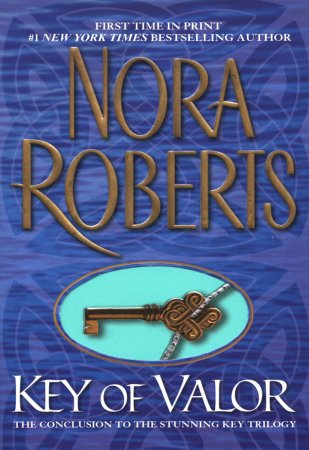 Key of Valor
Key of Valor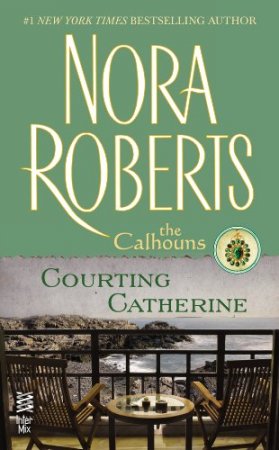 Courting Catherine
Courting Catherine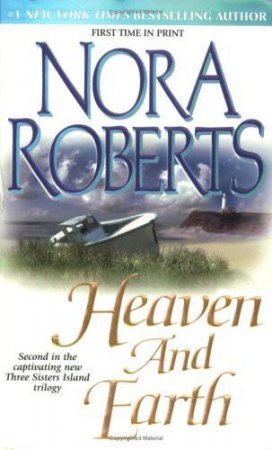 Heaven and Earth
Heaven and Earth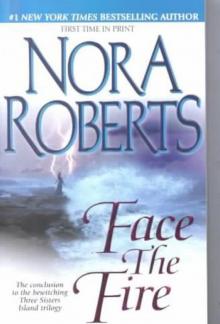 Face the Fire
Face the Fire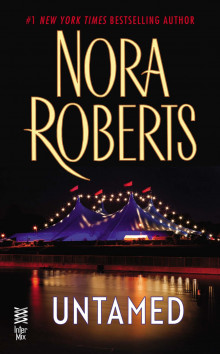 Untamed
Untamed Skin Deep
Skin Deep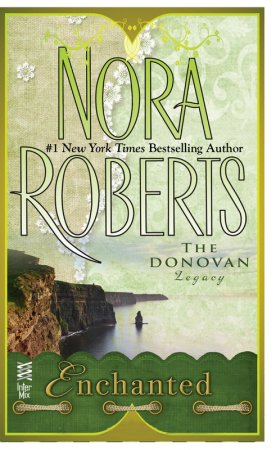 Enchanted
Enchanted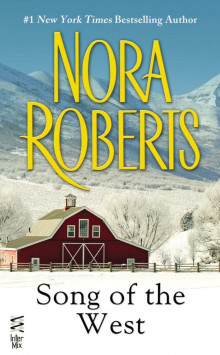 Song of the West
Song of the West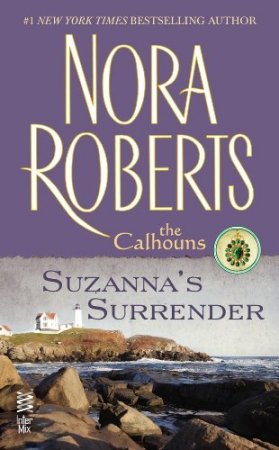 Suzanna's Surrender
Suzanna's Surrender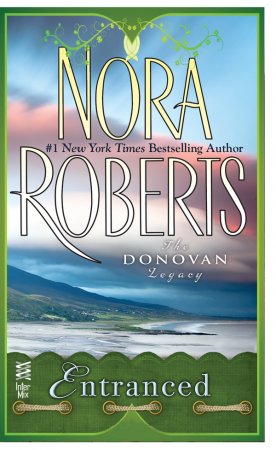 Entranced
Entranced Dance of the Gods
Dance of the Gods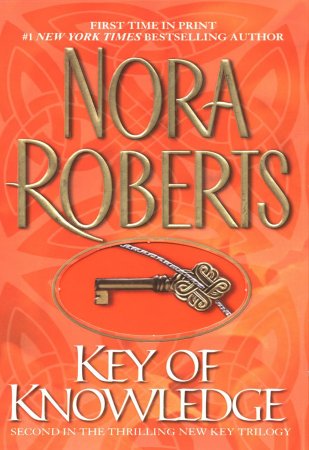 Key of Knowledge
Key of Knowledge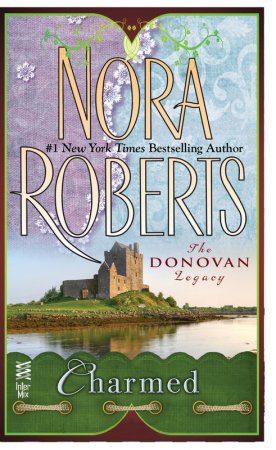 Charmed
Charmed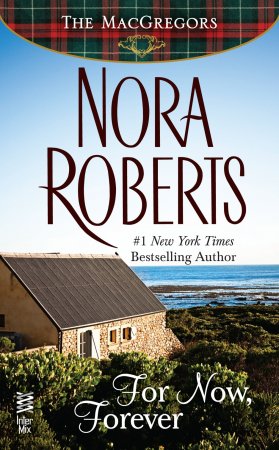 For Now, Forever
For Now, Forever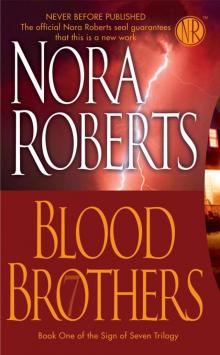 Blood Brothers
Blood Brothers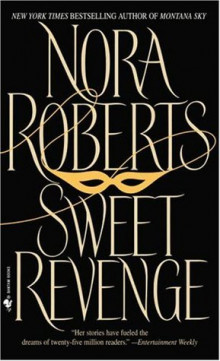 Sweet Revenge
Sweet Revenge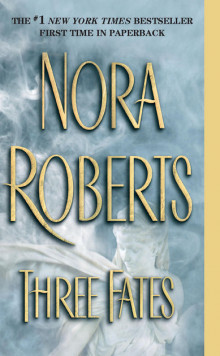 Three Fates
Three Fates Mind Over Matter
Mind Over Matter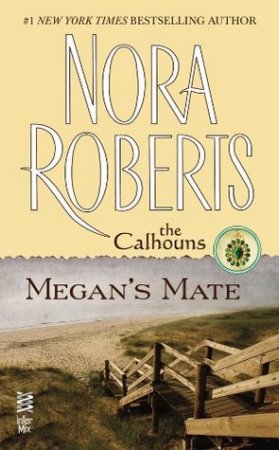 Megan's Mate
Megan's Mate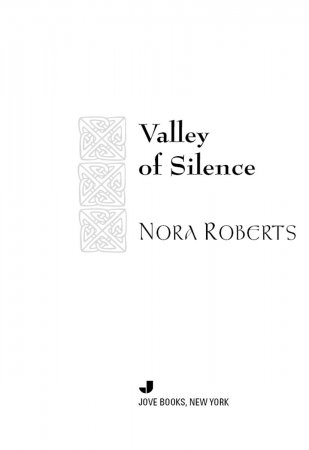 Valley of Silence
Valley of Silence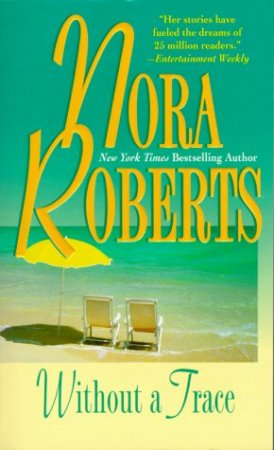 Without A Trace
Without A Trace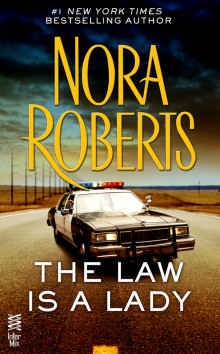 The Law is a Lady
The Law is a Lady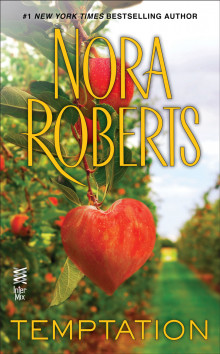 Temptation
Temptation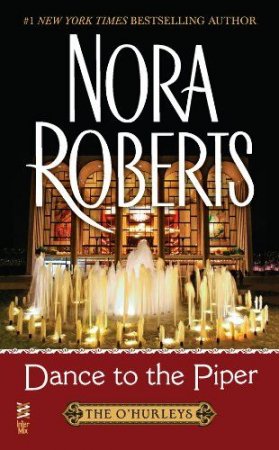 Dance to the Piper
Dance to the Piper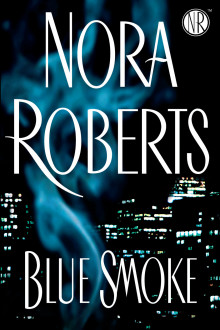 Blue Smoke
Blue Smoke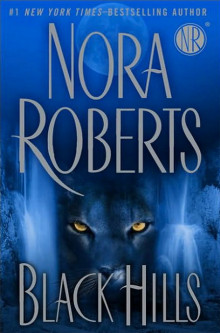 Black Hills
Black Hills The Heart's Victory
The Heart's Victory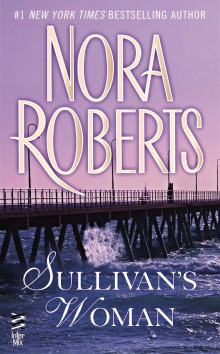 Sullivan's Woman
Sullivan's Woman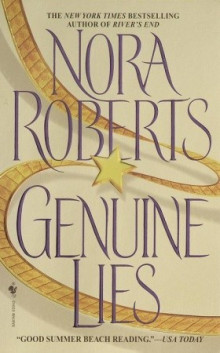 Genuine Lies
Genuine Lies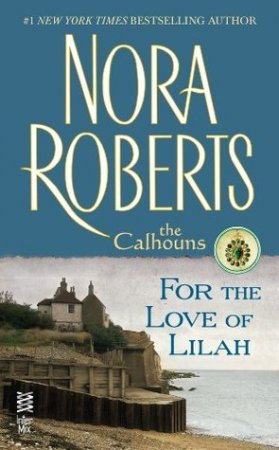 For the Love of Lilah
For the Love of Lilah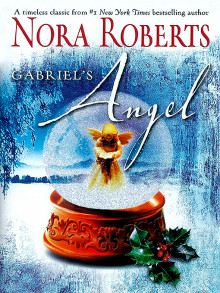 Gabriel's Angel
Gabriel's Angel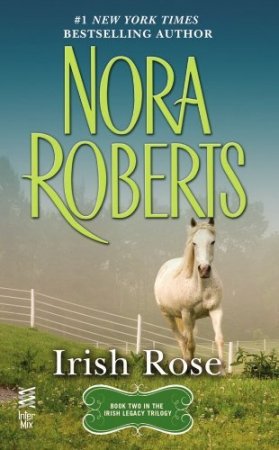 Irish Rose
Irish Rose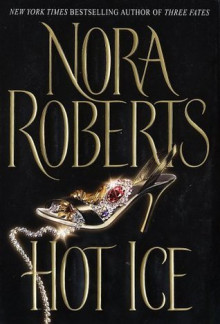 Hot Ice
Hot Ice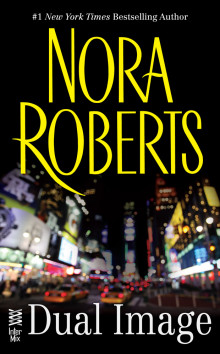 Dual Image
Dual Image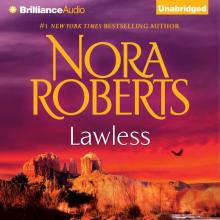 Lawless
Lawless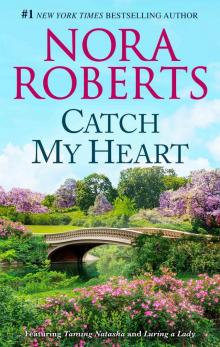 Catch My Heart
Catch My Heart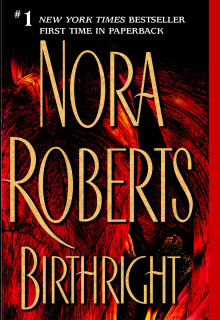 Birthright
Birthright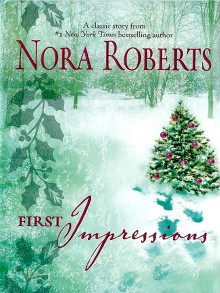 First Impressions
First Impressions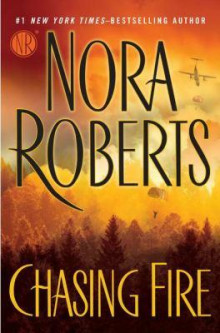 Chasing Fire
Chasing Fire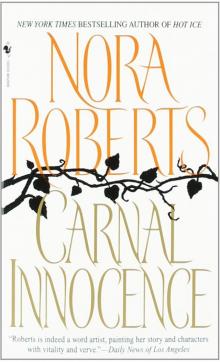 Carnal Innocence
Carnal Innocence Best Laid Plans
Best Laid Plans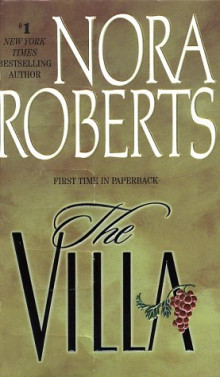 The Villa
The Villa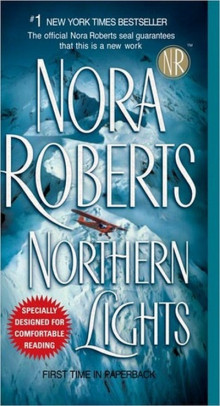 Northern Lights
Northern Lights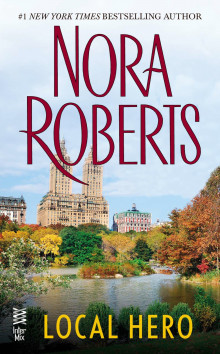 Local Hero
Local Hero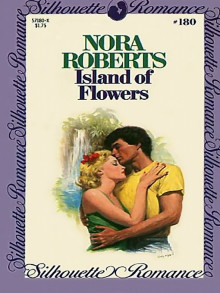 Island of Flowers
Island of Flowers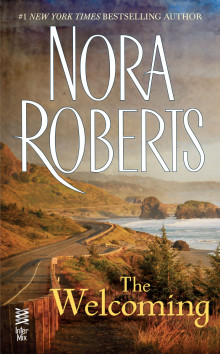 The Welcoming
The Welcoming All I Want for Christmas
All I Want for Christmas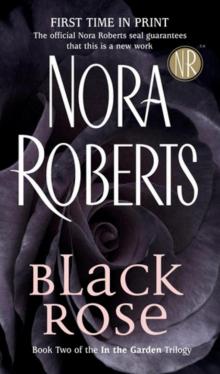 Black Rose
Black Rose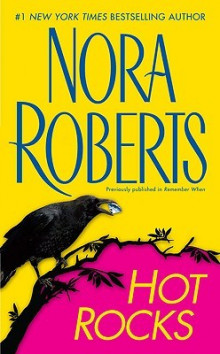 Hot Rocks
Hot Rocks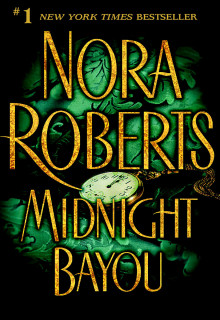 Midnight Bayou
Midnight Bayou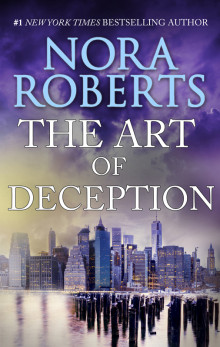 The Art of Deception
The Art of Deception From This Day
From This Day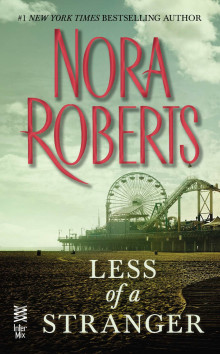 Less of a Stranger
Less of a Stranger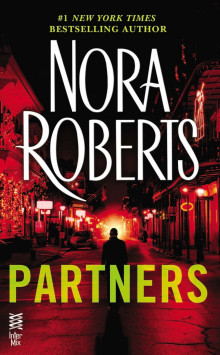 Partners
Partners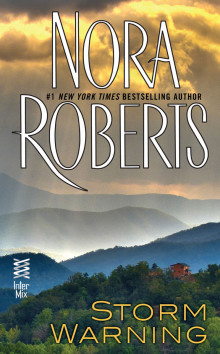 Storm Warning
Storm Warning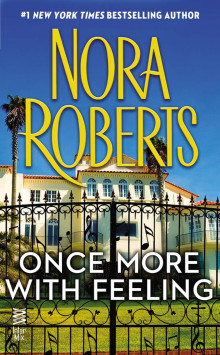 Once More With Feeling
Once More With Feeling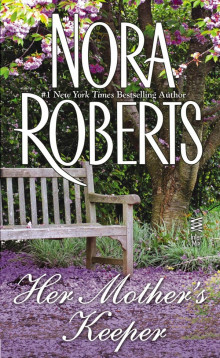 Her Mother's Keeper
Her Mother's Keeper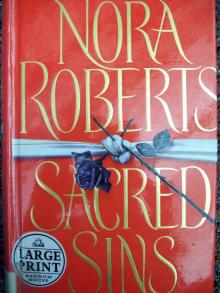 Sacred Sins
Sacred Sins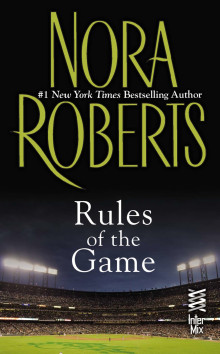 Rules of the Game
Rules of the Game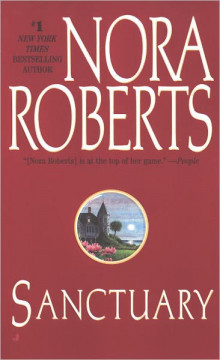 Sanctuary
Sanctuary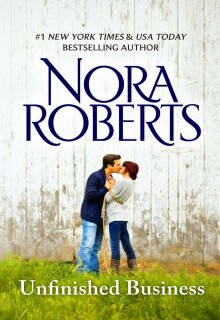 Unfinished Business
Unfinished Business Cordina's Royal Family Collection
Cordina's Royal Family Collection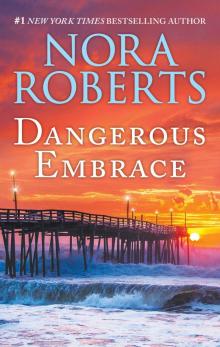 Dangerous Embrace
Dangerous Embrace One Summer
One Summer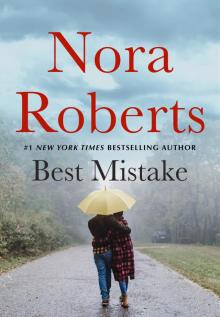 The Best Mistake
The Best Mistake Boundary Lines
Boundary Lines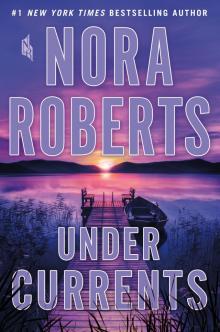 Under Currents
Under Currents The Stanislaski Series Collection, Volume 1
The Stanislaski Series Collection, Volume 1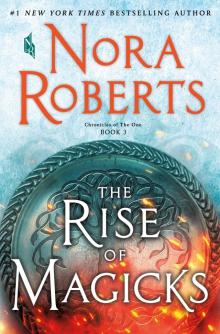 The Rise of Magicks
The Rise of Magicks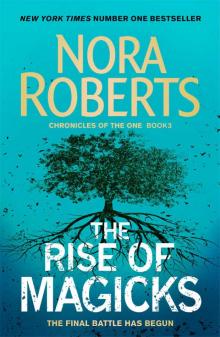 The Rise of Magicks (Chronicles of The One)
The Rise of Magicks (Chronicles of The One)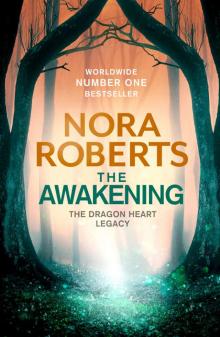 The Awakening: The Dragon Heart Legacy Book 1
The Awakening: The Dragon Heart Legacy Book 1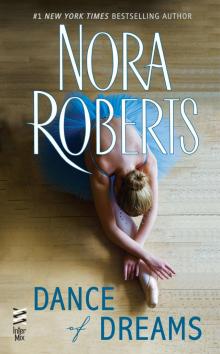 Dance of Dreams
Dance of Dreams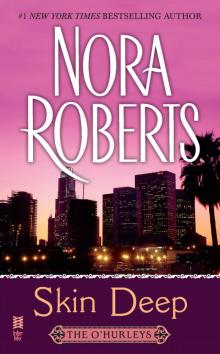 Skin Deep: The O'Hurleys
Skin Deep: The O'Hurleys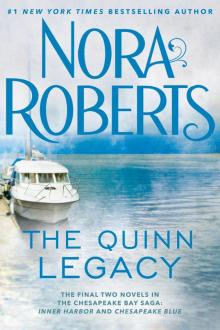 The Quinn Legacy: Inner Harbor ; Chesapeake Blue
The Quinn Legacy: Inner Harbor ; Chesapeake Blue![[Chronicles of the One 03.0] The Rise of Magicks Read online](http://i1.bookreadfree.com/11/chronicles_of_the_one_03_0_the_rise_of_magicks_preview.jpg) [Chronicles of the One 03.0] The Rise of Magicks
[Chronicles of the One 03.0] The Rise of Magicks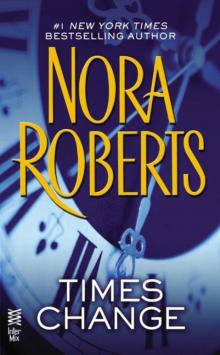 Times Change
Times Change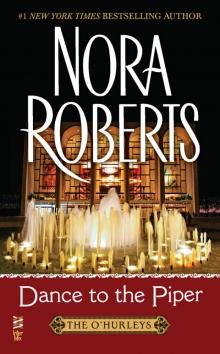 Dance to the Piper: The O'Hurleys
Dance to the Piper: The O'Hurleys Christmas In the Snow: Taming Natasha / Considering Kate
Christmas In the Snow: Taming Natasha / Considering Kate Waiting for Nick
Waiting for Nick Summer Desserts
Summer Desserts Dream 2 - Holding the Dream
Dream 2 - Holding the Dream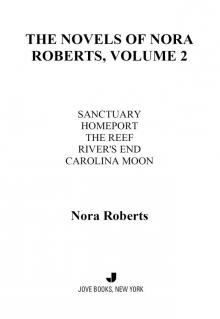 The Novels of Nora Roberts, Volume 2
The Novels of Nora Roberts, Volume 2 In the Garden Trilogy
In the Garden Trilogy Eight Classic Nora Roberts Romantic Suspense Novels
Eight Classic Nora Roberts Romantic Suspense Novels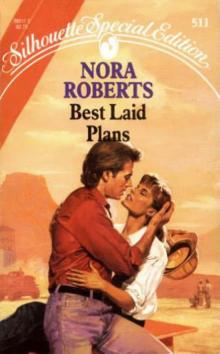 Best Laid Plans jh-2
Best Laid Plans jh-2 From the Heart
From the Heart Holiday Wishes
Holiday Wishes Dream 1 - Daring to Dream
Dream 1 - Daring to Dream Second Nature
Second Nature Summer Pleasures
Summer Pleasures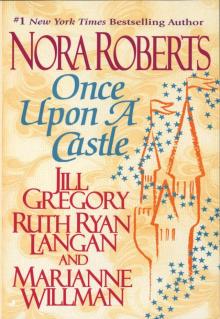 Once Upon a Castle
Once Upon a Castle Stars of Mithra Box Set: Captive StarHidden StarSecret Star
Stars of Mithra Box Set: Captive StarHidden StarSecret Star Impulse
Impulse The Irish Trilogy by Nora Roberts
The Irish Trilogy by Nora Roberts The Pride Of Jared Mackade tmb-2
The Pride Of Jared Mackade tmb-2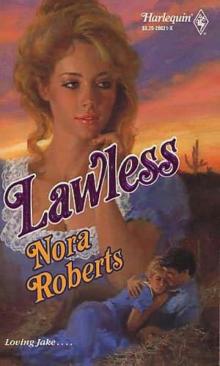 Lawless jh-3
Lawless jh-3 Taming Natasha
Taming Natasha Endless Summer
Endless Summer Bride Quartet Collection
Bride Quartet Collection Happy Ever After tbq-4
Happy Ever After tbq-4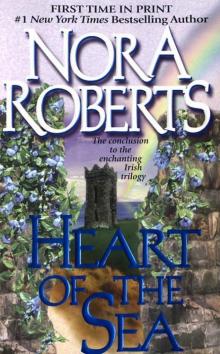 Heart Of The Sea goa-3
Heart Of The Sea goa-3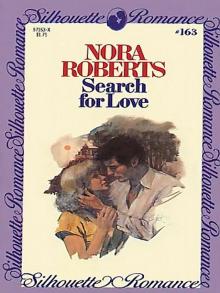 Search for Love
Search for Love Once upon a Dream
Once upon a Dream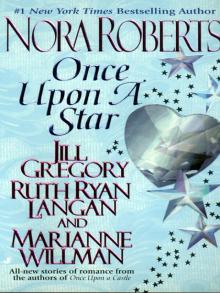 Once Upon a Star
Once Upon a Star Dream Trilogy
Dream Trilogy Risky Business
Risky Business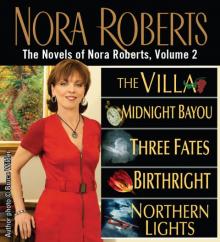 The Novels of Nora Roberts, Volume 3
The Novels of Nora Roberts, Volume 3 Dream 3 - Finding the Dream
Dream 3 - Finding the Dream Promises in Death id-34
Promises in Death id-34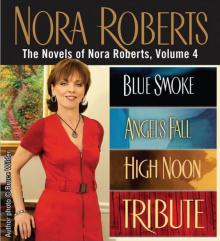 The Novels of Nora Roberts, Volume 4
The Novels of Nora Roberts, Volume 4 The Perfect Hope ib-3
The Perfect Hope ib-3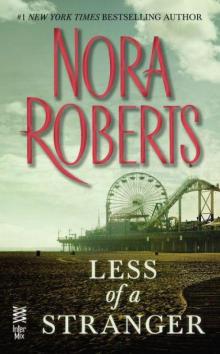 Less than a Stranger
Less than a Stranger Savour the Moment: Now the Big Day Has Finally Arrived, It's Time To...
Savour the Moment: Now the Big Day Has Finally Arrived, It's Time To... Convincing Alex
Convincing Alex Bed of Roses tbq-2
Bed of Roses tbq-2 Savour the Moment tbq-3
Savour the Moment tbq-3 Lessons Learned
Lessons Learned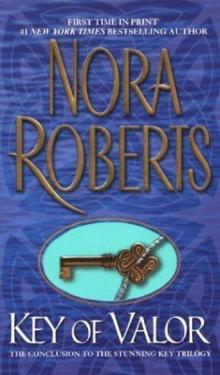 Key Of Valor k-3
Key Of Valor k-3 Red lily gt-3
Red lily gt-3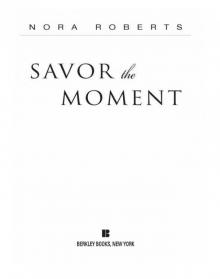 Savor the Moment
Savor the Moment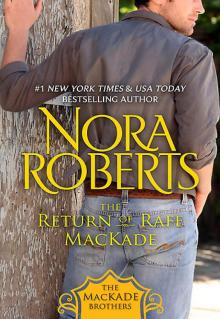 The Return Of Rafe Mackade tmb-1
The Return Of Rafe Mackade tmb-1 For The Love Of Lilah tcw-3
For The Love Of Lilah tcw-3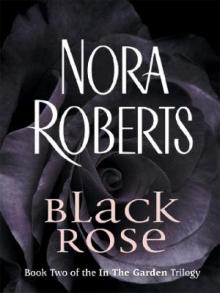 Black Rose gt-2
Black Rose gt-2 Novels: The Law is a Lady
Novels: The Law is a Lady Chesapeake Bay Saga 1-4
Chesapeake Bay Saga 1-4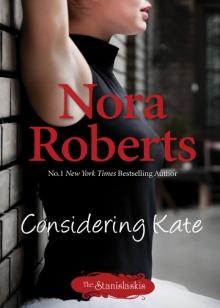 Considering Kate
Considering Kate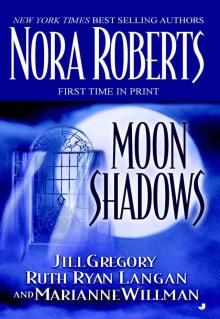 Moon Shadows
Moon Shadows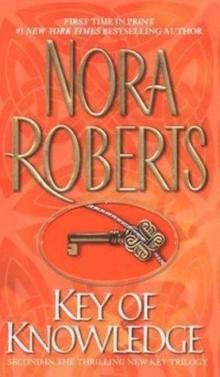 Key of Knowledge k-2
Key of Knowledge k-2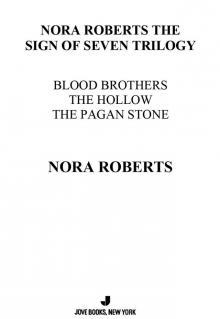 The Sign of Seven Trilogy
The Sign of Seven Trilogy Once Upon a Kiss
Once Upon a Kiss The Novels of Nora Roberts, Volume 5
The Novels of Nora Roberts, Volume 5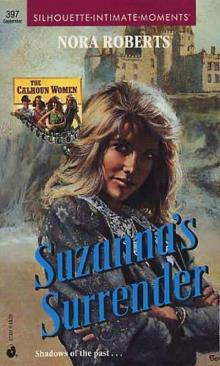 Suzanna's Surrender tcw-4
Suzanna's Surrender tcw-4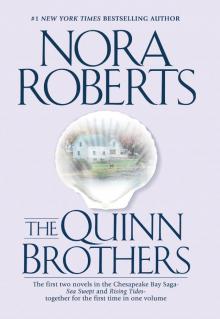 The Quinn Brothers
The Quinn Brothers Falling for Rachel
Falling for Rachel Brazen Virtue
Brazen Virtue Time Was
Time Was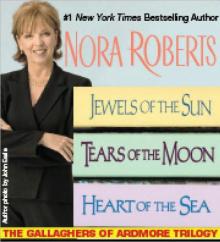 The Gallaghers of Ardmore Trilogy
The Gallaghers of Ardmore Trilogy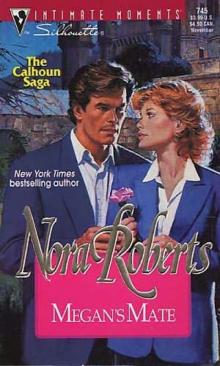 Megan's Mate tcw-5
Megan's Mate tcw-5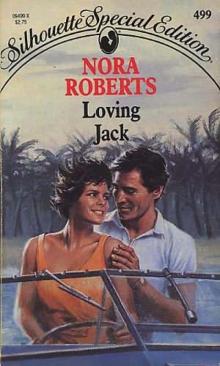 Loving Jack jh-1
Loving Jack jh-1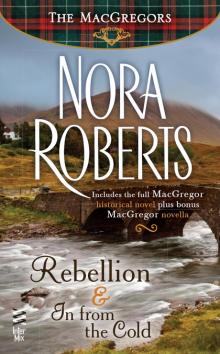 Rebellion & In From The Cold
Rebellion & In From The Cold Blue Dahlia gt-1
Blue Dahlia gt-1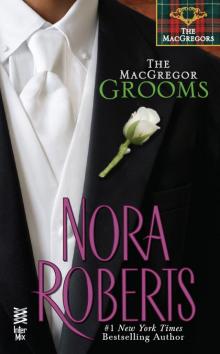 The MacGregor Grooms
The MacGregor Grooms The Next Always tibt-1
The Next Always tibt-1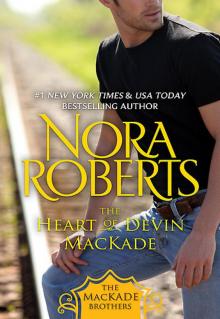 The Heart Of Devin Mackade tmb-3
The Heart Of Devin Mackade tmb-3 The Novels of Nora Roberts Volume 1
The Novels of Nora Roberts Volume 1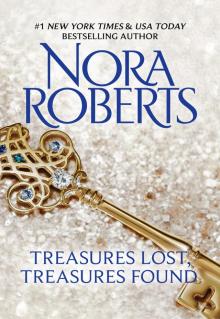 Treasures Lost, Treasures Found
Treasures Lost, Treasures Found Nora Roberts's Circle Trilogy
Nora Roberts's Circle Trilogy The Key Trilogy
The Key Trilogy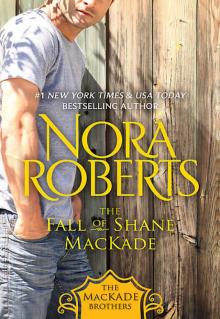 The Fall Of Shane Mackade tmb-4
The Fall Of Shane Mackade tmb-4 A Will And A Way
A Will And A Way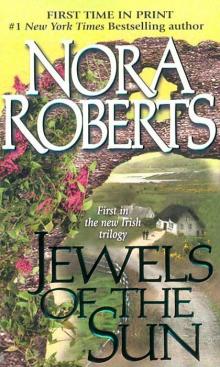 Jewels of the Sun goa-1
Jewels of the Sun goa-1 Luring a Lady
Luring a Lady